Must-Visit Destinations in Ha Giang: A Comprehensive Travel Guide
At the northernmost point of Vietnam, Ha Giang is a tough paradise for adventure seekers and environmentalists. Unspoiled by mainstream tourists, the area boasts some of Vietnam’s most stunning scenery, ancient civilizations, and hidden treasures. Let MOTOGO Tours dive into must-visit destinations in Ha Giang.
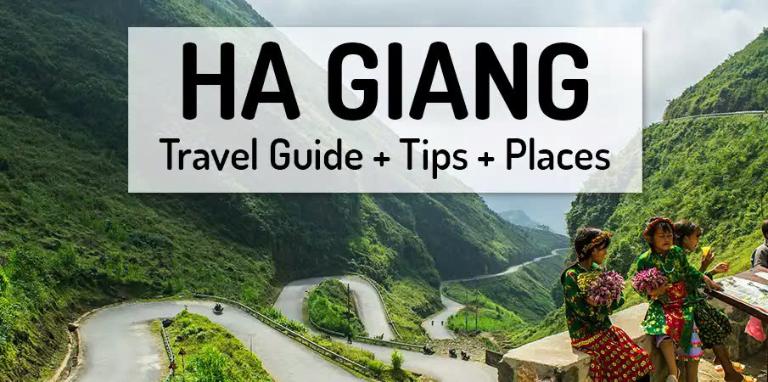
Ha Giang: The Gateway to Unvelling Beauty Hidden in Vietnam
Often referred to as Vietnam’s last frontier, Ha Giang is a territory of wild beauty and isolated communities. Prominent for its limestone mountains, rice terraces, and ethnic variety, bordering China is There are seventeen different ethnic communities living in the province, each with own customs and celebrations.
How to Get to Ha Giang
Ha Giang is somewhat far, although getting there is easier than it used to be. Most guests begin their trip from Hanoi. From there, if you’re feeling daring, you might rent a motorbike or take a direct bus, which usually runs 6 to 8 hours. Because they allow the opportunity to explore the meandering roads and amazing scenery at your own leisure, motorbike rides are rather popular.
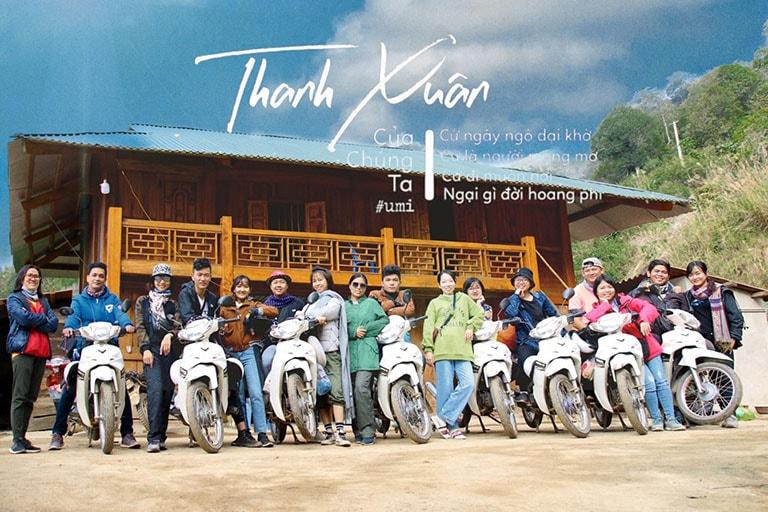
Best Time to Visit Ha Giang
The best time to visit Ha Giang will rely on your desired sight. Whereas fall (September to November) is well-known for golden rice terraces, spring (February to April) delivers vivid blooms in full bloom. Winter (December to January) presents foggy scenery and milder temperatures ideal for the most calm visitors.
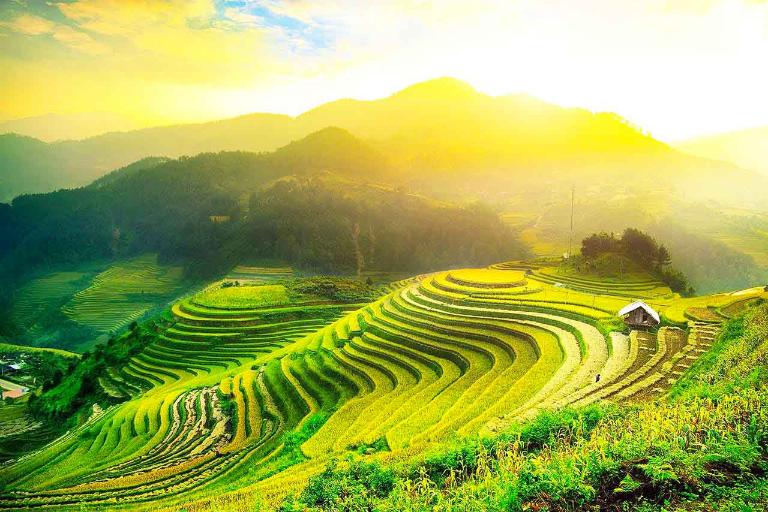
>>> When is the Best Time to Visit Ha Giang? Discover the Ideal Seasons
Top Must-Visit Destinations in Ha Giang
Now that you are here, let’s explore the main sites you should not miss on your vacation to Ha Giang. From amazing natural beauties to historical and cultural sites, every place presents a different experience.
Dong Van Karst Plateau Geopark
Ha Giang’s crown gem, the Dong Van Karst Plateau is a UNESCO Global Geopark. Towering limestone formations, vast valleys, and ancient ethnic settlements comprise this strange scene. This is also a site where time itself seems to have stopped since you will also find ancient fossils and geological formations spanning over 500 million years.
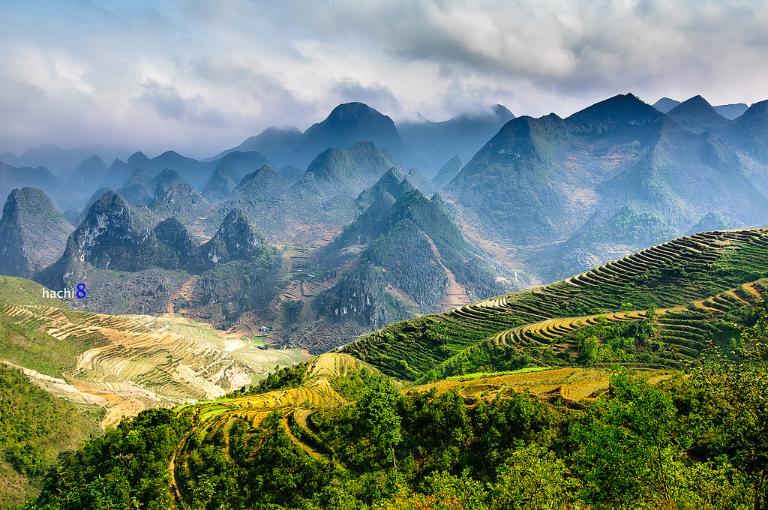
Ma Pi Leng Pass
Unquestionably one of the most well-known highways in Vietnam, Ma Pi Leng Pass is a breathtakingly gorgeous length between Dong Van and Meo Vac. You will be treated to magnificent vistas of the Nho Que River slinking through the gorge below as you bike or drive across the pass. It’s a photographer’s paradise with its spectacular settings and sheer cliffs.
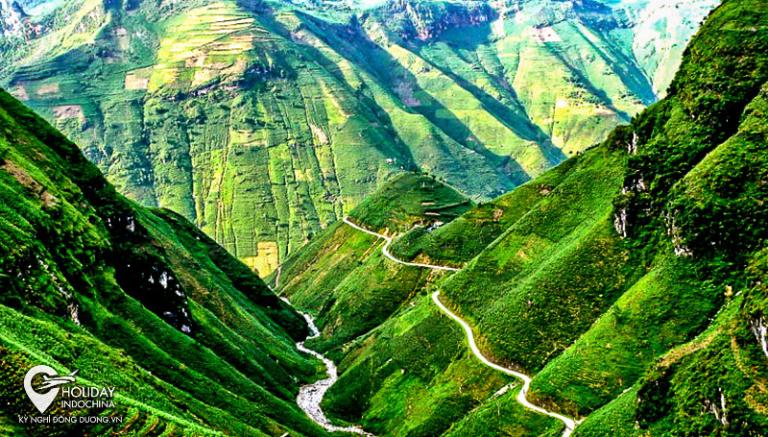
Lung Cu Flag Tower
Rising at Vietnam’s northernmost point, Lung Cu Flag Tower is a monument to country’s sovereignty and a source of national pride. Rising on Dragon Mountain, the tower flies a huge Vietnamese flag clearly visible from kilometers around. For guests, climbing the 389 steps to reach the summit of the tower is a rite of passage that pays for expansive views of the surrounding countryside and the far-off border with China.
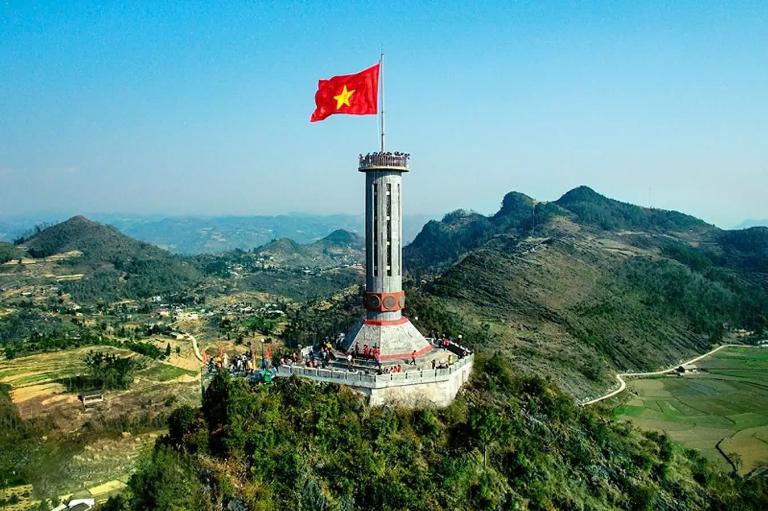
Lo Lo Chai Village
Situated next to the Lung Cu Flag Tower, Lo Lo Chai Village is a hidden treasure providing a real window into the lives of one of Vietnam’s tiniest ethnic minority, the Lo Lo people. The village comprises of winding stone paths and classic earthen homes with tiled roof. Here you may personally meet the friendly hospitality of the residents, who are happy to share with you their cultures and ways of life.
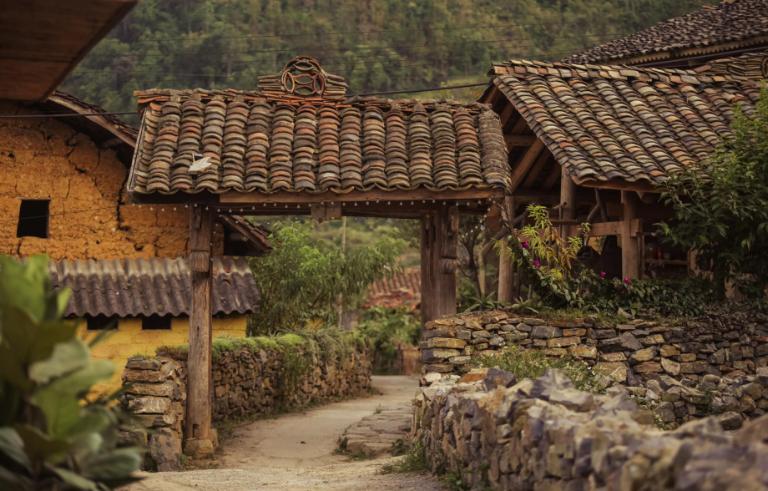
>>> Let’s see: Pa Vi Village: A H’Mong Cultural Haven in Nature’s Embrace
Quan Ba Heaven Gate
For many visitors arriving into Ha Giang’s highlands, Quan Ba Heaven Gate is the first main stop as the gateway to the Dong Van Karst Plateau Geopark. From this vantage point, you will be treated to amazing vistas of the gently undulating mountains and valleys below, including the natural wonder in their own right, the Twin Mountains (also known as Fairy Bosom Mountains).
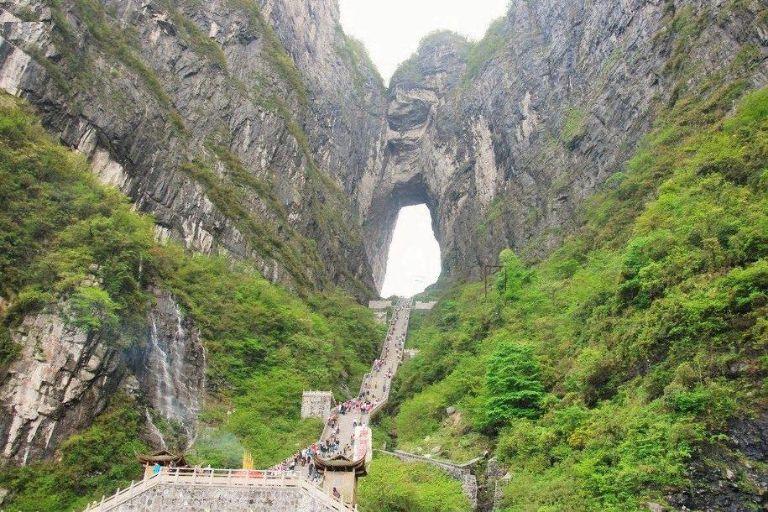
Quan Ba Twin Mountains
Often referred to as “Fairy Bosom,” the Quan Ba Twin Mountains are two naturally occurring hills notable for their great symmetry and verdant cover. Not just a natural beauty, these mountains—which located just outside Ha Giang town—have great cultural value since they are thought to be the resting place of a fairy who formerly resided among the people.
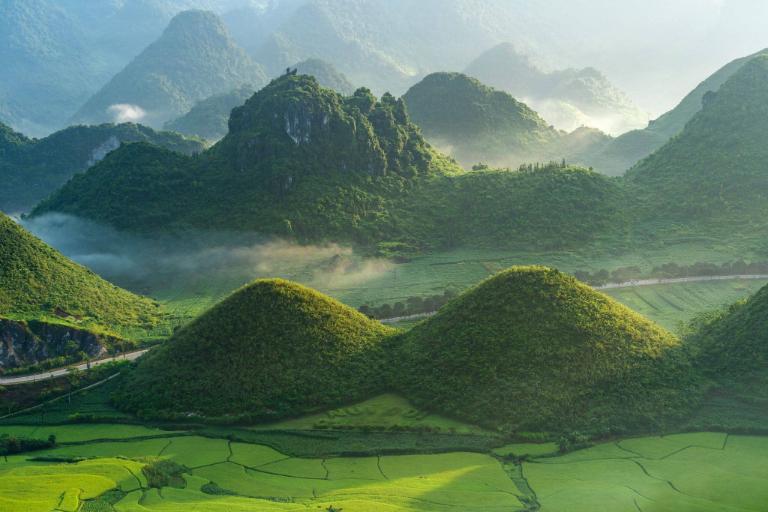
Dong Van Ancient Town
Dong Van Ancient Town is one of historical landmarks in Ha Giang. This lovely region, which dates back to the French colonial era, still mostly shows the original design, with beautiful stone cottages lining little cobblestone lanes. Wandering the Ancient Town provides a window into Vietnam’s rich past and feels like stepping back in time.
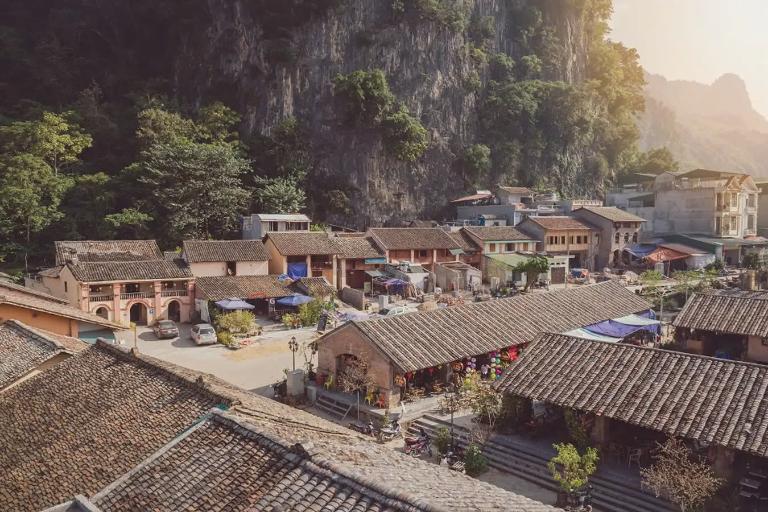
Meo Vac Town
Meo Vac is a little village tucked away in a valley surrounded by mountains that provides a serene haven from the busy tourist destinations. Locals from surrounding towns come to barter commodities, cattle, and handcrafted items at Meo Vac’s very well-known Meo Vac Market. This is the ideal location to see the centuries-unchanged traditional methods of living.
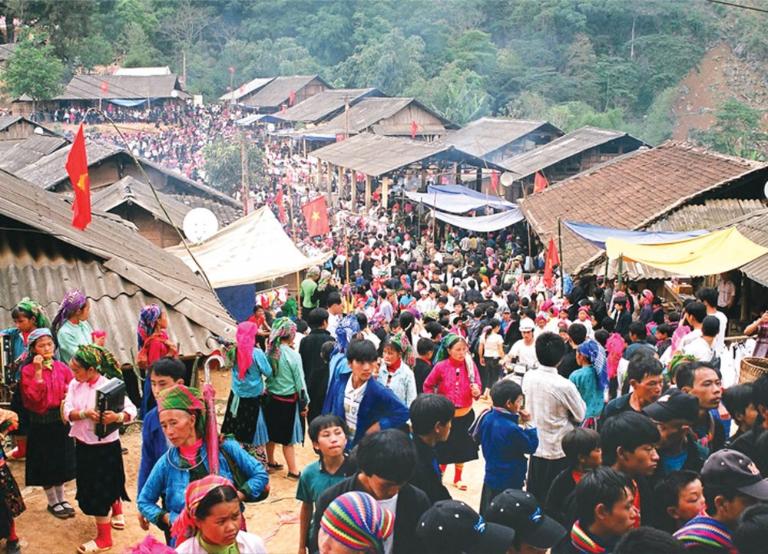
Hoang Su Phi Terraced Fields | Must-visit Destinations in Ha Giang
Without seeing the breathtaking Hoang Su Phi terraced fields, no visit to Ha Giang would be whole. Particularly during harvest season when they become a stunning shade of gold, these rice terraces are among the most beautiful in Vietnam. Built over generations by the local ethnic groups, the terraces highlight their respect of the ground and inventiveness.
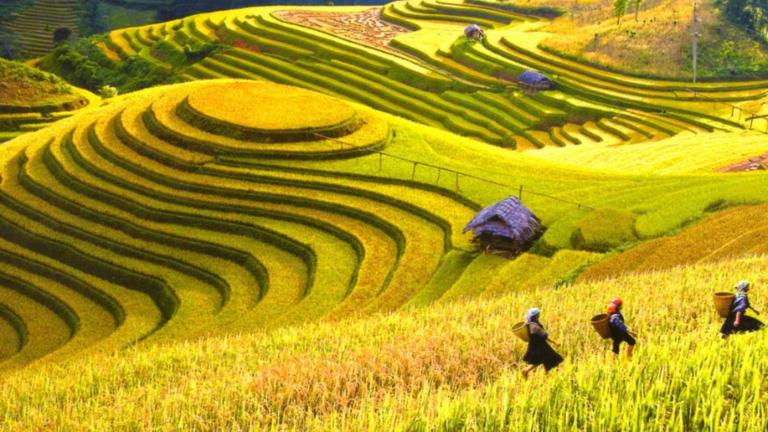
Vuong Family Mansion
Reputed as the “Palace of the Hmong King,” the Vuong Family Mansion is a relic from Ha Giang’s regal heritage. Constructed in the early 20th century, this mansion’s exquisite traditional Hmong architecture—complete with stone walls and detailed wood carvings—showcases Offering a remarkable window into Ha Giang’s past, the mansion chronicles the Vuong family, who previously dominated over the area.
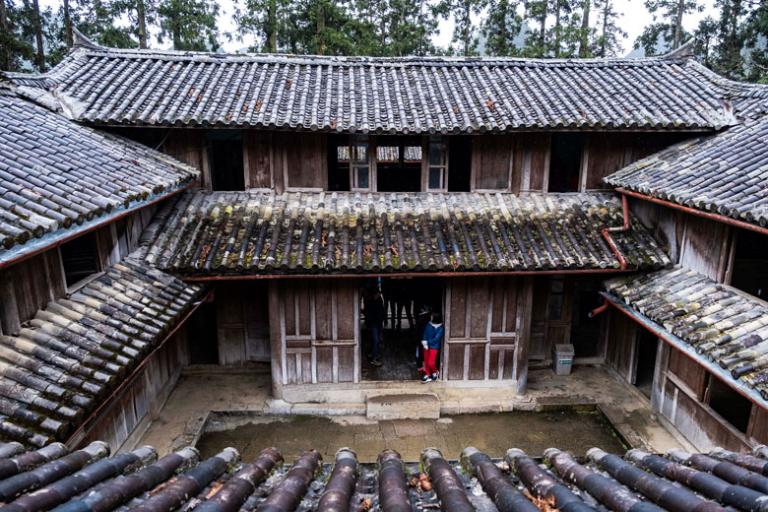
Yen Minh Pine Forest
Often likened to European sceneries, the Yen Minh Pine Forest is a special location in Ha Giang providing a variation of view from the rocky highlands and terraced plains. Towering straight pine trees that reach as far as the eye can see abound in this woodland. A picnic or a leisurely walk would be perfect here because of the cool, fresh air and quiet environment.
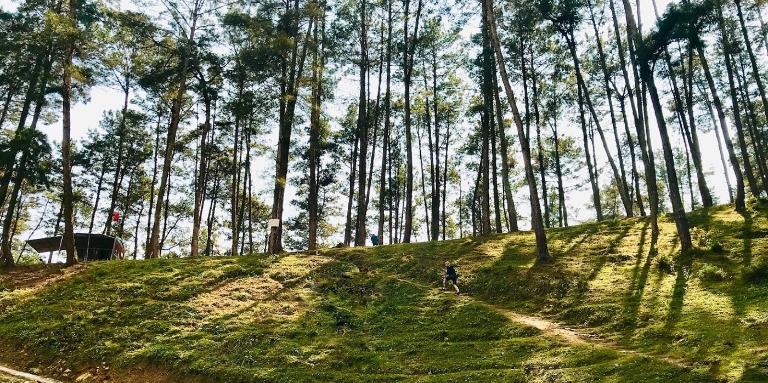
Du Gia Village
Situated around 70 kilometers southeast of Ha Giang City, Du Gia Village is predominantly inhabited by ethnic minority groups such as the Tay, Dao, and Hmong. Dense forests, terraced rice fields, and beautiful valleys surround Du Gia to create a seasonally changing scene. The bright yellow terraced fields during the rice harvest season (September–October) accentuates the appeal of the community.

>>> Explore: Thien Huong Village: The Century-Old Ancient Village at the Nation’s Edge
Sung La Valley | Must-visit Destinations in Ha Giang
On the road from Dong Van to Meo Vac in Ha Giang, Sung La Valley—known for its stunning scenery and traditional culture—is a little yet lovely spot. Tucked among the craggy mountains and encircled by terraced crops, this peaceful valley offers a window into the existence of Vietnam’s ethnic minorities—particularly the Hmong population.

Pho Bang Town
Unique architecture is a hallmark of Pho Bang Town. Made of clay, wood, and stone, the traditional homes here have thick mud walls meant to keep the inside warm in winter and cool in summer. The town looks different because of the tiled roofs and the complex woodwork carvings on the buildings. The houses’ vivid, faded walls, covered in crimson lanterns and Chinese calligraphy, accentuate their old-world appeal.

Nho Que River
Originating in Yunnan Province of China, the Nho Que River runs into Vietnam and passes thru Ha Giang and Cao Bang Provinces before joining the Gam River. Within Vietnam, the river runs about 192 kilometers. The Tu San Alley towers up to 800 meters on both sides, providing a dramatic background for the meandering river below. This is among the most amazing elements along the river.

Tham Ma Pass
About 15 kilometers from Dong Van Town, Tham Ma Pass is a major stop on the Ha Giang Loop and sits on National Highway 4C. The difficult curves and hairpin bends Tham Ma Pass is known for zigzag ascent of the mountain. For motorbike riders, these twisting paths not only give an exciting ride but also panoramic views of the surrounding terrain.

>>> Let’s see: Happiness Road: Explore Ha Giang’s Beauty and Culture
Suoi Thau Grassland
The most magnificent grassland in Ha Giang province is Suoi Thau grassland. About five kilometers from Coc Pai town, Xin Man district, the grassland rests at the meeting point with Bac Ha Plateau. Travelers fondly refer to this area as “Swiss grassland in the heart of Ha Giang” or as comparable to the beauty of Europe. Arriving to Suoi Thau grassland, guests will experience a natural immersion in grass, clouds, sky.
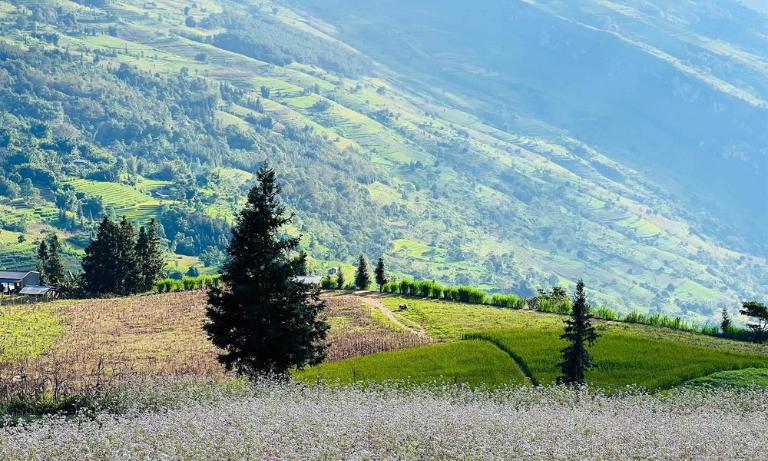
Pao’s House | Must-visit Destinations in Ha Giang
Still the biggest rammed earth house in the vicinity is Pao’s house. This is regarded as a “ancient villa” with around 80 years of age and a great architectural quality. Built with priceless timber pillars covered in dirt, Pao’s house features a front yard and a tile roof. This quality bears the special ideological and cultural worth of the rammed earth homes of the Mongol people.
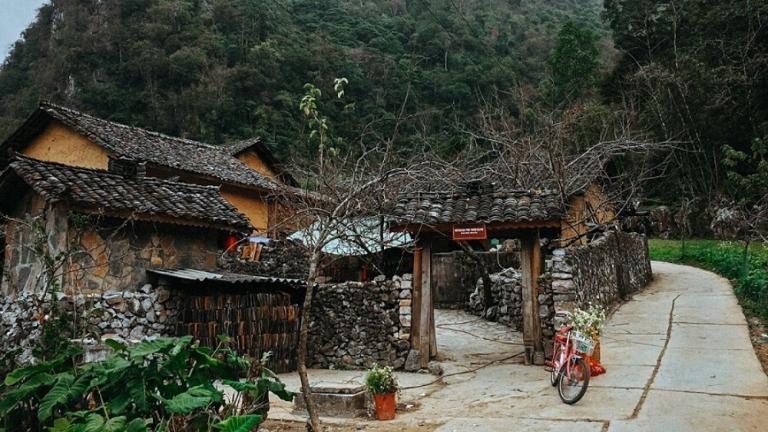
Tien Waterfall – Gio Pass
Tien Waterfall – Gio Pass, rising dramatically 70 meters from the Tả Ngán stream in Bắc Hà, Lào Cai, cascades down from an elevation of over 1,403 meters above sea level. Tucked among the immaculate trees, this amazing waterfall glides elegantly over rocky cliffs to produce an amazing natural display that enthralls everybody who visits. Here guests may find a startling juxtaposition between the delicate, poetic appeal of the unspoiled surroundings and the majesty of nature.

>>> Explore Sung Khanh Pagoda Ha Giang: The Gateway to Vietnam’s Spiritual Heritage
Local Culture and Traditions in Ha Giang
Ha Giang is a cultural melting pot home to the Hmong, Tay, and Dao among other ethnic groups, not only about stunning scenery. From traditional attire to celebrations and markets that have stayed unaltered for decades, these communities have kept their own customs intact.
Traditional Markets in Ha Giang
Seeing the Ha Giang local markets is one of the best ways to really get the local way of life. Markets including Dong Van market, Meo Vac market, and Quan Ba come alive each week with the sound of haggling and vivid colors of ethnic textiles. Here you may try regional cuisine, purchase artisan handicrafts, and experience the way of life of the area.
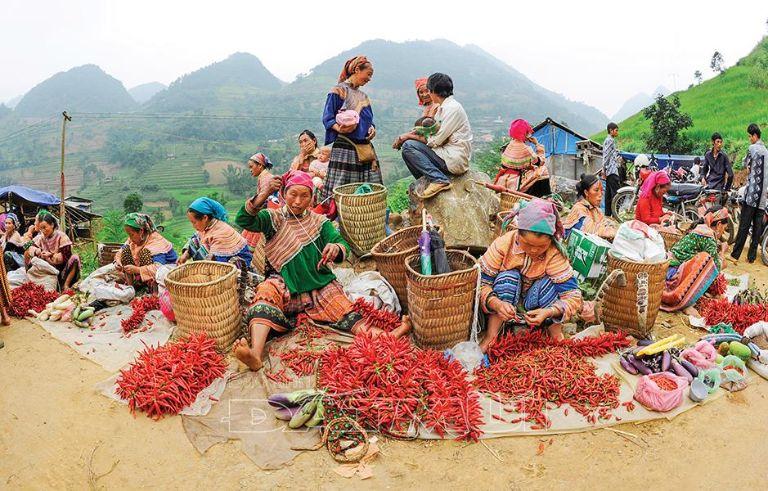
Ha Giang Festivals
Ha Giang is well-known for its energetic celebrations, many of which have lunar calendar and agricultural cycle ties. Celebrating the beauty of the buckwheat flowers blooming all throughout the area in late October, the Buckwheat Flower Festival in Dong Van is very well-liked. With traditional dances, music, and regional cuisine making this event an amazing cultural experience, hundreds of people visit annually.

A unique celebration that highlights the rich customs of the area, the Khau Vai Love Market brings ethnic minorities from nearby villages together yearly to reunite with old lovers.
Essential Travel Tips for Ha Giang
Particularly for first-time tourists, visiting Ha Giang can be an interesting yet demanding journey. These are some basic guidelines to help you to maximize your trip.
Accommodation Options
From cheap hostels to distinctive homestays, Ha Giang presents a selection of lodging options. Staying with a local family at a homestay is very advised if you wish a real experience. Many of these homestays offer a direct view of the native way of life and are housed in classic stilt dwellings. A few boutique hotels in cities like Dong Van and Meo Vac also provide extra comfort for those looking for it.
>>> Explore Accommodation in Ha Giang: Complete Guide 2025
What to Pack for Your Trip
Ha Giang’s uneven terrain and changing weather mean you should pack sensibly. Particularly if you are visiting in the colder months, layers are absolutely vital. If you intend to tour the terraces and paths, you really must have a good set of hiking shoes. Remember sunscreen, a cap, and a waterproof jacket as, especially in the highlands, the weather changes rapidly. To capture the breathtaking scenery, a camera or drone is also quite a terrific idea!
Safety Tips for Exploring Ha Giang
Ha Giang is usually safe, but even so, one should exercise care especially when riding motorcycles on twisting mountain roads. Always wear a helmet; if you have never ridden a motorbike, think about paying a local guide to accompany you about. It’s also a good idea to let someone know your trip schedule as some places can be somewhat far apart and phone signals could be few.

The must-visit destinations in Ha Giang are compiled above. Ha Giang is a really unique location providing something for everyone. Ha Giang will help you find adventure, natural beauty, or cultural experiences whatever your interests.
Related Posts:
- Discover the Best Waterfalls in Ha Giang, Vietnam
- Villages in Ha Giang: Explore the Hidden Gems of Northern Vietnam
- Ha Giang Loop’s Best Passes and Roads: A Complete Guide to Vietnam’s Top Motorbike Routes
- The Simple Beauty of Buckwheat Flower Valley in Ha Giang








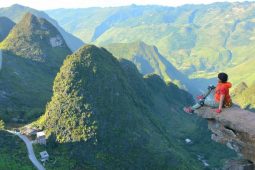
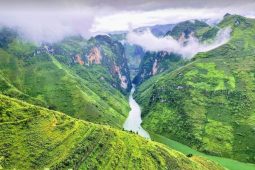
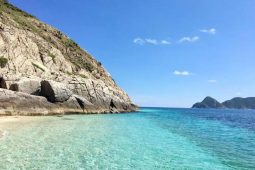
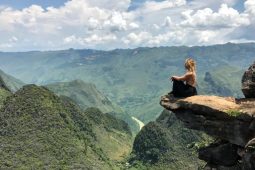
Be the first to comment!